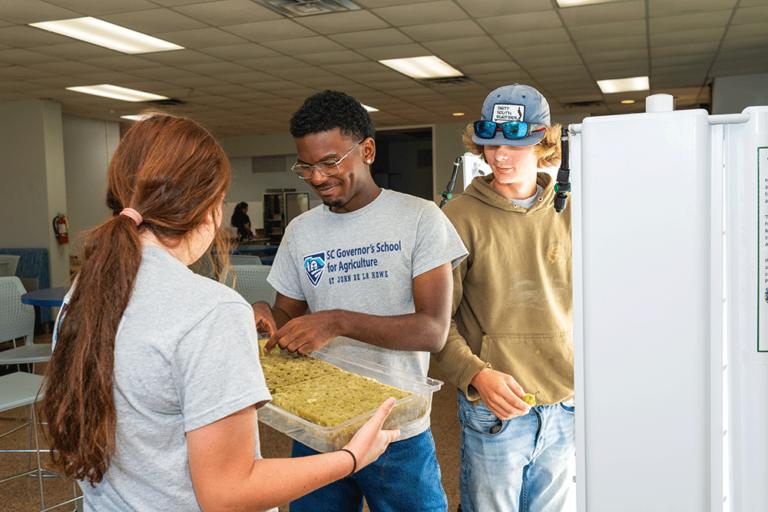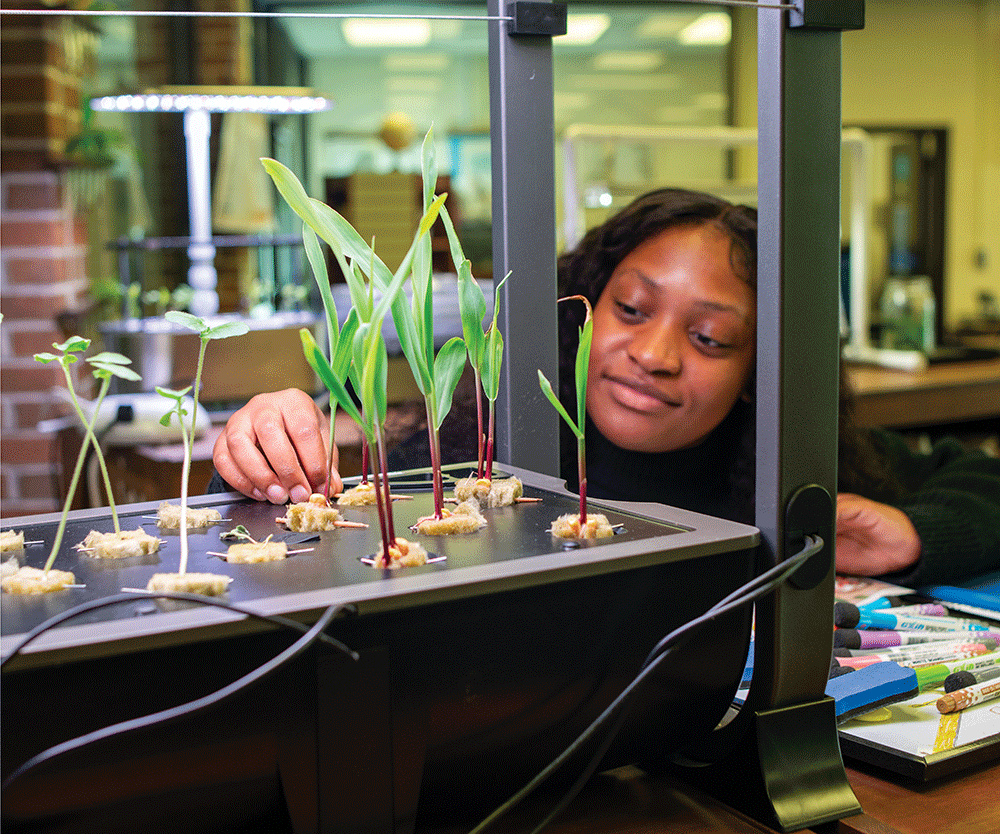Western South Carolina is Farming the Future
A McCormick high school cultivates the next generation of farmers.

A high school in McCormick is growing South Carolina’s future farmers.
The SC Governor’s School for Agriculture at John de la Howe – the first statewide program of its kind in the nation – offers a rigorous agricultural education program that challenges students to develop their interests in agricultural and natural resources.
By combining academia, life skills classes and hands-on agricultural components, the school is helping create a bright future for agriculture in South Carolina and beyond.
Solid Foundations
Though it was established in 1797 and is the oldest education institution in the state below the college level, John de la Howe officially became a governor’s school in 2020. It was built on a model resembling that of other governor’s schools in South Carolina.
A boarding school for 10th graders and above, this state-funded, public, residential high school serves all 46 counties in South Carolina. Students receive hands-on training in fields such as agriculture, agribusiness, forestry, land management and food science. Plus, the school focuses on the world beyond school, teaching students valuable life skills.
“Our students are the future leaders in agriculture and agribusiness in South Carolina and beyond,” says Dr. Timothy Keown, president of John de la Howe.
Students from the first graduating class in 2022 were awarded $500,000 in total scholarships to pursue higher education. Some graduating students receive industry certification and go straight to work after their time in school.
“One of the biggest things that our school offers for kids is the ability to network,” says Eric McCall, agricultural programs manager at John de la Howe.
Corporate entities, agricultural businesses and government agencies have offered internships and job opportunities to John de la Howe students.

Hands-On Learning
As part of the school’s unique curriculum, students pursue one or more of four educational pathways: Agriculture Mechanics & Technology, Horticulture, Environmental & Natural Resources Management, and Plant and Animal Systems. Students also take honors-level classes, with academic and agricultural elements interacting throughout the day.
“There’s a big difference between learning something in a book and actually being out in the field doing it yourself,” McCall says.
Since the school is also a working farm, students can participate in internships on the farm during their enrollment. Hands-on experiences in agriculture, along with classes in agribusiness, technology and beyond, set students up for success in the agriculture industry.
“The agricultural world is really in need of people who want to get out and go to work,” McCall says.
After spending time at John de la Howe, many students go on to start their own enterprises, drawing from the entrepreneurial spirit cultivated at the school.

Bright Futures
Agribusiness is big business in the state, meaning the demand for talent in this industry is high. Skills learned at John de la Howe can be applied in the real world upon graduating.
“A lot of the kids are going right back into the local economy,” McCall says, whether that be starting their own businesses or landing a job in agriculture.
While demand for talent remains high, the opportunity to learn relevant skills is also harder to come by. As people increasingly rely on larger corporate farms for their food, society at large is drifting away from its agricultural roots. As part of its future goals, John de la Howe hopes to become more self-sustainable by growing 50% of the food that is consumed by its staff and students.
“[Growing your own food] is, to some degree, a lost art,” McCall says. “Agriculture empowers an individual to make changes in their life.”
Learning agricultural skills has proven beneficial to students and the state. The skills and passion students bring to this field help sustain vital agricultural traditions.
“I feel like we’ve not even scratched the surface yet of what our students can do,” Keown says. “The future is so bright.”
Get to Know Western South Carolina
Want to learn more about living and working in Western South Carolina? Check out the latest edition of Livability Western South Carolina.
